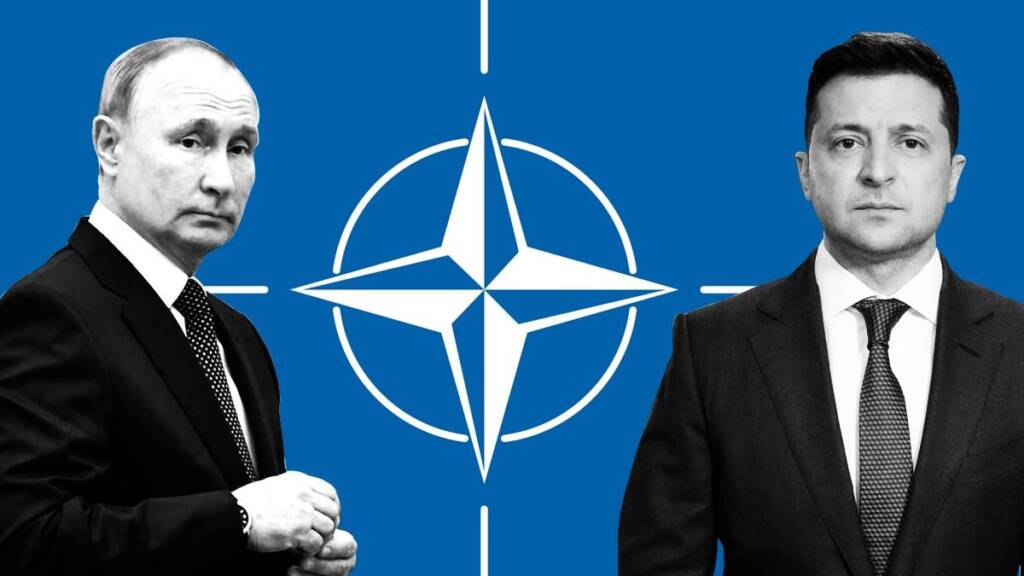EU and US stopped Ukraine Relief. NATO signed. Russia captured Avdeevka. NATO grumbled. Ukraine is down to its last brigade and there is a full-scale Civil war in NATO.
The past twelve months have laid bare the volatile nature of the North Atlantic Treaty Organization (NATO). In February 2023, the Wall Street Journal reported on the invigoration of NATO prompted by the ongoing Russia-Ukraine conflict. However, as time has progressed, the unity once bolstered by external threats is showing signs of strain.
Join us on Telegram: https://t.me/tfiglobal
Among the persistent issues is the adherence to the defense spending guideline, which mandates member countries to allocate at least 2% of their GDP to defense. Currently, only 11 out of the 31 NATO members meet this criterion. Notably, France and Germany—key players within the alliance—are among the countries falling short, complicating collective strategic decisions, particularly concerning Russia.
The discord within NATO is further exemplified by the stance of German Chancellor Olaf Scholz, who has expressed hesitance in sending Taurus cruise missiles to Ukraine, fearing entanglement in a direct conflict with Russia. This reluctance comes at a particularly tumultuous time for Scholz, as he grapples with the fallout from a leak within the German military intelligence. This leak suggests that British forces may already be operating in Ukraine, adding another layer of complexity to the alliance’s internal dynamics.
Read More: Ukraine is down to its LAST BRIGADE
Recently, President Emmanuel Macron of France sparked significant controversy with his suggestion that Western troops might be dispatched to Ukraine, a stance that has met with widespread disapproval among NATO member states. Macron further criticized German Chancellor Olaf Scholz for Germany’s perceived inadequacy in support, citing the provision of “sleeping bags and helmets” rather than substantial military aid.
This critique, however, overlooks the extensive contributions Germany has made, as reported by the Kiel Institute’s Ukraine Support Tracker, which tallies Germany’s aid (encompassing military, financial, and humanitarian assistance) at approximately €17.7 billion, second only to the United States. In contrast, France’s contributions amount to a relatively modest €635 million.
Macron’s proposition and subsequent remarks have not only been largely dismissed but have also exacerbated existing tensions within NATO, especially casting doubt on the moral and political leadership of France and Germany in Eastern Europe. This skepticism fuels opposition to the anticipated appointment of Dutch Prime Minister Mark Rutte as the next NATO Secretary General. Rutte’s candidacy is contentious, particularly in light of the Netherlands’ consistent failure to meet the 2% GDP defense spending guideline, leading former Estonian President Toomas Hendrik Ilves to question Rutte’s moral credibility.
Berlin’s ongoing endeavors to expand gas power plant infrastructure in Europe highlight a pressing need for energy diversification. While liquefied natural gas (LNG) imports from Qatar and the United States are part of the solution, challenges such as vulnerabilities in the Red Sea and President Biden’s reservations about expanding US LNG exports underscore the complexity of reducing energy dependence on Russia. Despite the significant damage to Nord Stream 2, the possibility of repairing and utilizing remaining functional parts of the pipeline indicates a likely scenario where Russia remains a key energy partner in the post-war landscape.
Macron’s critique of Germany’s initial reluctance to support Ukraine robustly has merit, reflecting the efforts required to galvanize Berlin into action. However, Macron’s proposal to dispatch Western troops to Ukraine inadvertently aligns with the Kremlin’s narrative, portraying the conflict as a NATO proxy war aimed at undermining Russia. Remember, it was Germany that started the Boycott Macron trend.
Read More: NATO ‘s Covert War in Ukraine Exposed!
These developments collectively illustrate NATO’s lack of a unified strategy, explaining that the bloc is now living on borrowed time. While a cohesive and determined NATO could have posed some challenge to Russia, the alliance’s current fragmented state offers Moscow a cutesie adversary.
Moving on from useless alliances and groups, let’s talk about useless fighter jets that require manicured roads and pedicured pilots to fly. One such fighter jet is proving absolutely useless in Ukraine.
